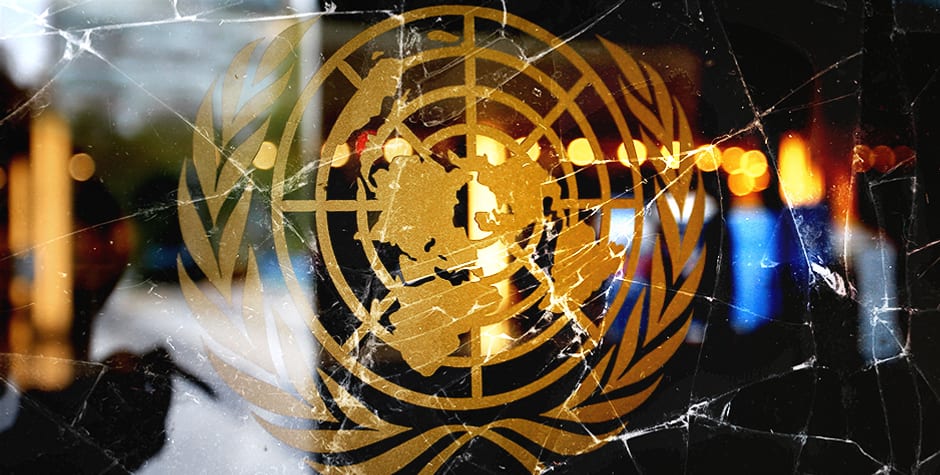Israel May Not Do What Other Countries Routinely Do—Says UN Commission
U.N. officials are well known for claiming Israel is guilty of all sorts of alleged wrongdoing without doing any research or legal analysis. Members of the “Commission of Inquiry on the Occupied Palestinian Territory, including East Jerusalem, and Israel ” continue to do just that, officially determining Israel guilty based on an unquestioning acceptance of unsubstantiated accusations made by Palestinians.
We have just submitted a legal brief defending Israel’s interests and responding to the U.N. Commission’s false allegations, bias, and legal fallacies contained in its latest report.
As my colleague mentioned here:
At the UNHRC alone roughly half of all resolutions for the entire globe condemn the State of Israel. Israel has been the subject of more commissions of inquiry (9) than any other country (2); more special sessions (9) than any other country (5); and it is the only country in the world that has a permanent agenda item dedicated to focus on its alleged wrongdoings.
In May 2021, continuing that anti-Israel tradition, the U.N. Human Rights Council held a special session and established “an independent, international commission of inquiry to investigate, in the [so-called] Occupied Palestinian Territory, including East Jerusalem, and in Israel, all alleged violations of international humanitarian law [aka the Law of Armed Conflict] and abuses of international human rights law.”
The Commission has released three reports to date. One would think the word “independent” in the Commission’s mandate means free from any outside pressure, influence, or bias. However, the Commission is anything but unbiased. Members of the Commission have made anti-Israel remarks both before and after being appointed to the Commission, casting grave doubt on the integrity and objectivity of its members and their findings.
Further, as the Commission’s mandate suggests, the reports do include accusations of violations of law, but what is missing from the reports is the analysis of facts in light of the applicable law, which is needed to determine the truthfulness of such charges. Without such analysis, the Commission has simply regurgitated in all three reports baseless accusations that Israel has violated the Law of Armed Conflict and international human rights law. (See our response to the Commission’s first report here.)
On June 2, 2023, the Commission released its third report. This report purports to examine “attacks, restrictions, and harassment of civil society actors, by all duty bearers”: Israel, the State of Palestine, and de facto authorities in Gaza. To do that, it criticizes Israeli laws and practices— which laws and practices wholly comport with what other countries may, and routinely, do as a matter of right and without being accused by U.N. commissions and agencies of violating international law.
For example, the Commission appears to believe that all other countries may have counterterrorism laws to stop suspected terrorists from entering their borders, but Israel may not. Other countries may revoke a person’s citizenship for treasonous activities, but Israel may not. Other countries may require NGOs to disclose their foreign funding, but Israel may not. Other countries may prohibit state funding to NGOs that engage in anti-state speech and activities, but Israel may not. Other countries may prohibit the filming of soldiers or military installations, but Israel may not. Other countries may prohibit waving the flag of an enemy state or a terrorist organization on their soil, but Israel may not.
Our legal response to the Commission goes into details of each of these issues and provides reference to similar laws in just a few countries, which have never been the subject of the U.N.’s inquiry, and rightfully so because such laws do not conflict with any international law, let alone conflict with laws applicable in armed conflicts.
In addition to condemning Israel, the Commission also criticizes supporters of Israel. The Commission condemns laws enacted by several states in the United States that prohibit discrimination against Jewish businesses. The Commission claims that such laws have a chilling effect on the Boycott, Divestment, Sanctions (BDS) movement, which advocates for boycotting Jewish businesses. By criticizing laws that prohibit the state—not private individuals—from discriminating against Jewish businesses, the Commission is, in effect, advocating for the BDS movement, thereby expressly favoring discrimination against Jewish businesses worldwide. In the Commission’s view, the Commission may support the BDS movement, but U.S. states and foreign governments may not oppose it, i.e., the Commission has a right to speak in favor of the BDS movement, but individual states do not have a right to speak against it.
Finally, while the Commission provides examples of accusations of attacks against and prosecution of Palestinians by Jewish settlers and Israeli armed forces in the disputed territories, it ignores countless examples of violence against Jews by Palestinians. When it discusses alleged attacks by Jewish settlers and Israeli authorities, the Commission only provides one-sided accusations, making no effort to consider the Israeli side altogether. Every conflict has a minimum of two sides. Members of the Commission cannot claim to be unbiased when they completely disregard one side as the U.N. Commission does. Nor can they claim to have substantiated Israeli wrongdoing until they examine the facts on both sides.
Our response reminds the Commission once again that “[i]n order to be truly called an ‘independent’ Commission, it should uphold the standards it cites in its reports: ‘International law cannot be selectively applied; it must be implemented in its entirety.’”
At the ACLJ, we will continue to vigorously respond to such biased reports and support our ally, the State of Israel.

